Music, Musicology, Interpretation
22 to 24 October 2020, Belgrade
XV International Conference of the Department of Musicology,
University of Arts in Belgrade, Faculty of Music
Deadline 11 May 2020
The Department of Musicology of the Faculty of Music, University of Arts in Belgrade, is pleased to announce its Fifteenth International Conference on the topic Music–Musicology–Interpretation.
The subject of the conference Music-Musicology-Interpretation focuses on the complex and multifaceted relationships between the constituent concepts. It proposes to re-examine these multiple relations by thematizing, from the point of view of interpretation, music as language, discourse, work of art and text, the performance of music and the discourse on music – musicology itself.
Musical hermeneutics as a discipline is today the focus of musicological interest. During the last three decades of the 20th century, it developed in parallel with research into musical semiotics and, as the influence of “pure” structural analysis was waning, it became an important current of thought about music at the beginning of the 21st century. Its renewal in relation to the legacy of the 19th century was partly due to interpretive criticism in Anglo-Saxon literature but also to the works of Carl Dahlhaus in the 1970s and 1980s. Next come researchers into hermeneutics and interpretive criticism and analysis, each with a different orientation in their individual pathways and objects of study, most of whom are still active today: Joseph Kerman, Nicholas Cook, Leo Treitler, Lawrence Kramer, Robert Hatten, Eero Tarasti, Jean-Jacques Nattiez, Michel Imberty, Bernard Vecchione, Christian Hauer, Makis Solomos…
In his Peri Hermeneias, Aristotle established an equality between “sounds emitted by the voice” and symbolic language, that is, meaningful language: “The sounds emitted by the voice are the symbols of the states of the soul, and the written words the symbols of words emitted by the voice” (Peri Hermeneias, 1 / 16a /). Being symbolic, signifying language is thus equated with interpretive language, mediating the relation of the transmitter “of the voice” to the things of the world, with the written language then constituted as a double mediation: of the spoken language and the things themselves. This chain of consecutive “interpretations-appropriations” (Ricœur, From Text to Action, 1986) thus recalls a chain of musical interpretations: the things of the world (the world of life, being-in-the-world) – the music (discourse, work of art, text) – the performance of music – the discourse on music, projecting, through the hermeneutical arc, into a new being-in-the-world, as an understanding of oneself in front of signs (Ricœur, ibid).
This chain allows us to problematize the relationship between music, discourse on music and interpretation on several levels.
At the methodological level, it enables us to re-examine the position of musicological interpretive criticism in relation to primary research, technical analysis and structural explanation, on the one hand, and the “new musicology”, on the other, and, at the disciplinary level, to re-examine the position of and relationship between musical hermeneutics and structuralism, as well as semiotics. In both cases, the question can be raised as to whether the structural explanation of the musical work or the explanation of the signs of culture, on the one hand, and interpretation, on the other, are mutually exclusive, or whether a methodological reconciliation is possible in the sense of the mediating role of explanation in the process of understanding, explanation and understanding being integrated into the interpretive chain.
At the poetic level, it allows us to reopen the question of the interpretive character of the musical work/discourse/text itself as the “voice emitted”, thus already the symbolic voice, and then to re-problematize the relationship between musical language and meaning, reference, representation, narrativity and time. In this sense, another question can be posed, namely how the specific abilities of music can help shed light on the interpretive process and the contemporary hermeneutical task in general. Also related to this is the problematics of the historicity of musical hermeneutics / musical interpretation, as well as the problematics of the interpretive discourse on music in history and as history. The issue of the subjectivity and objectivity of the discourse on music and music itself is part of the old debate but it lends itself to reconsideration in relation to music as a “thing” (L. Kramer) and the work of interpretation as event, action, dynamism, creation, production. The notion of metaphor, extracted as a key concept in different conceptualizations by many authors, musicologists and philosophers, is also proposed for examination: as a musical metaphor (at the poetic level) and as a metaphor in the discourse on music.
As a link in the interpretive process, the performance of a musical score as “appropriation” and actualization of a musical text, as a realization of its meaning in another “voice”, offers itself to examination, testifying to the opening of the musical work, discourse and text. In that sense, when it comes to interpreting music from the aspect of performing practice, it is understood as something much more than a mere reproduction of the score in sound. The variable roles of the music performer throughout history represent different social, cultural, stylistic, etc. conditions under which music is understood. In all these different approaches to a work of music, it is implicitly indicated that all of its incidences and meaningful transformations are only achieved by the performance.
The position of the listener in the interpretive process can be approached from several angles: semantic, psychological, narrative. Does the interpretive process not in fact end in the effectuation of the sense in the discourse (tacit or explicit, oral or written) of the listener who has passed through the musical interpretive chain?
Referring to the aforementioned findings, the following topics could be considered:
- Interpretive criticism in musicology versus primary research and the “new musicology”
- Musical hermeneutics versus semiotics and structural analysis of music
- Musical hermeneutics / interpretation in history and as history
- Musical work / discourse / text as interpretation
- Musical language and meaning, reference, representation, narrativity and time
- Musical metaphor and metaphor in the discourse on music
- Subjectivity and objectivity in musical interpretation
- Music and / as performance
- Musical performance and / as analysis of music
- Historically informed performance as a field of recreation of the past
- The listener as interpreter
Please submit your paper topic (including the thematic area as listed above) to Ivana Petković Lozo at e-mail address: muzikologija@fmu.bg.ac.rs
The submission deadline is May 11th, 2020.
Please include your short biography and an abstract of 250 words. You will be notified by 1 June, 2020 if your topic has been accepted.
The official language of the conference is English. It is possible to deliver papers also in German, French, Russian, and Serbian, but the authors are kindly requested to provide a Power-Point presentation in English or the translation of their papers in English. The time limit for the presentation and discussion of your paper is set at 30 minutes in total. Selected papers presented at the conference will be published in the proceedings.
Conference fee: Both participation at the Conference and the publication of a text whose topic has been accepted by the Programme Committee are conditional upon the payment of the participation fee. The travel expenses, per diem expenses and hotel accommodation are to be covered by the participants. The fee can be paid on the spot or with PayPal (120€; early bird, deadline June 15th, 2020: 100€; PhD candidates: 50€). Participants will be notified about PayPal payments instructions.
More about conference, themes and participation you may find at conference web site
Keynote Speakers:
Danielle Cohen-Levinas (Professor of Musicology and Philosophy, Université Paris 4 / ENS-CNRS, France), Robert S. Hatten (Marlene & Morton Meyerson Professor in Music, Professor of Music Theory), Sarah and Ernest Butler School of Music (The University of Texas at Austin, USA (TBC), Lawrence Kramer (Distinguished Professor of English and Music, Fordham University, USA), Makis Solomos (Professor of Musicology Université Paris 8, France), Eero Tarasti, (Professor emeritus of Musicology, The University of Helsinki, Finland).
Programme Committee: Professor Antonio Baldassarre, Lucerne University of Applied Sciences and Arts, Suisse, Professor Danielle Cohen-Levinas, Université Paris 4 / ENS-CNRS, France, Associate Professor Paulo Ferreira de Castro, CESEM – Nova FCSH, Portugal, Professor Robert S. Hatten, University of Texas at Austin, USA, Distinguished Professor Lawrence Kramer, Fordham University, USA, Associate Professor Marija Masnikosa, University of Arts in Belgrade, Serbia, Professor Ivana Perković, University of Arts in Belgrade, Serbia, Professor Tijana Popović Mladjenović, University of Arts in Belgrade, Serbia, Professor Makis Solomos, Université Paris 8, France, Professor Irina Susidko, Gnesins Russian Academy of Music in Moscow, Russia, Professor Leon Stefanija, University of Ljubljana, Slovenia, Professor Ana Stefanović, University of Arts in Belgrade, Serbia, Professor Dragana Stojanović-Novičić, University of Arts in Belgrade, Serbia, Professor emeritus Eero Tarasti, University of Helsinki, Finland, Academician, Professor emeritus Stanislav Tuksar, HAZU/University of Zagreb, Croatia, Professor Mirjana Veselinović-Hofman, University of Arts in Belgrade, Serbia
Organizing Committee: Stefan Cvetković, PhD candidate, Teaching Assistant, University of Arts in Belgrade, Marina Marković, PhD candidate, Teaching Assistant, University of Arts in Belgrade, Ivana Miladinović-Prica, PhD, Teaching Assistant, University of Arts in Belgrade, Radoš Mitrović, PhD, Teaching Assistant, University of Arts in Belgrade, Ivana Petković Lozo, PhD, Teaching Assistant, University of Arts in Belgrade.
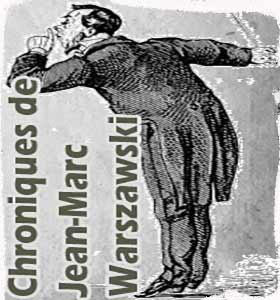
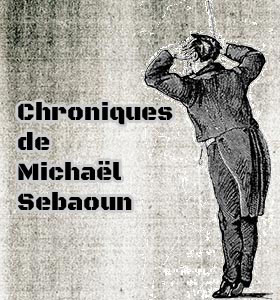
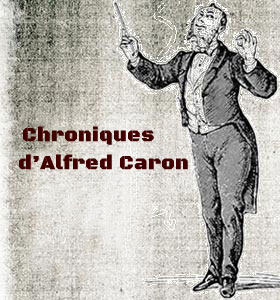
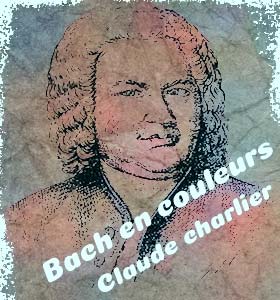
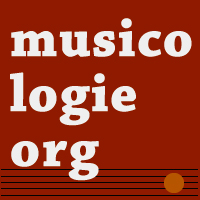 À propos - contact |
S'abonner au bulletin
| Biographies de musiciens | Encyclopédie musicale | Articles et études | La petite bibliothèque | Analyses musicales | Nouveaux livres | Nouveaux disques | Agenda | Petites annonces | Téléchargements | Presse internationale | Colloques & conférences | Collaborations éditoriales | Soutenir musicologie.org.
À propos - contact |
S'abonner au bulletin
| Biographies de musiciens | Encyclopédie musicale | Articles et études | La petite bibliothèque | Analyses musicales | Nouveaux livres | Nouveaux disques | Agenda | Petites annonces | Téléchargements | Presse internationale | Colloques & conférences | Collaborations éditoriales | Soutenir musicologie.org.
Musicologie.org, 56 rue de la Fédération, 93100 Montreuil, ☎ 06 06 61 73 41.
ISNN 2269-9910.

Jeudi 19 Décembre, 2024

